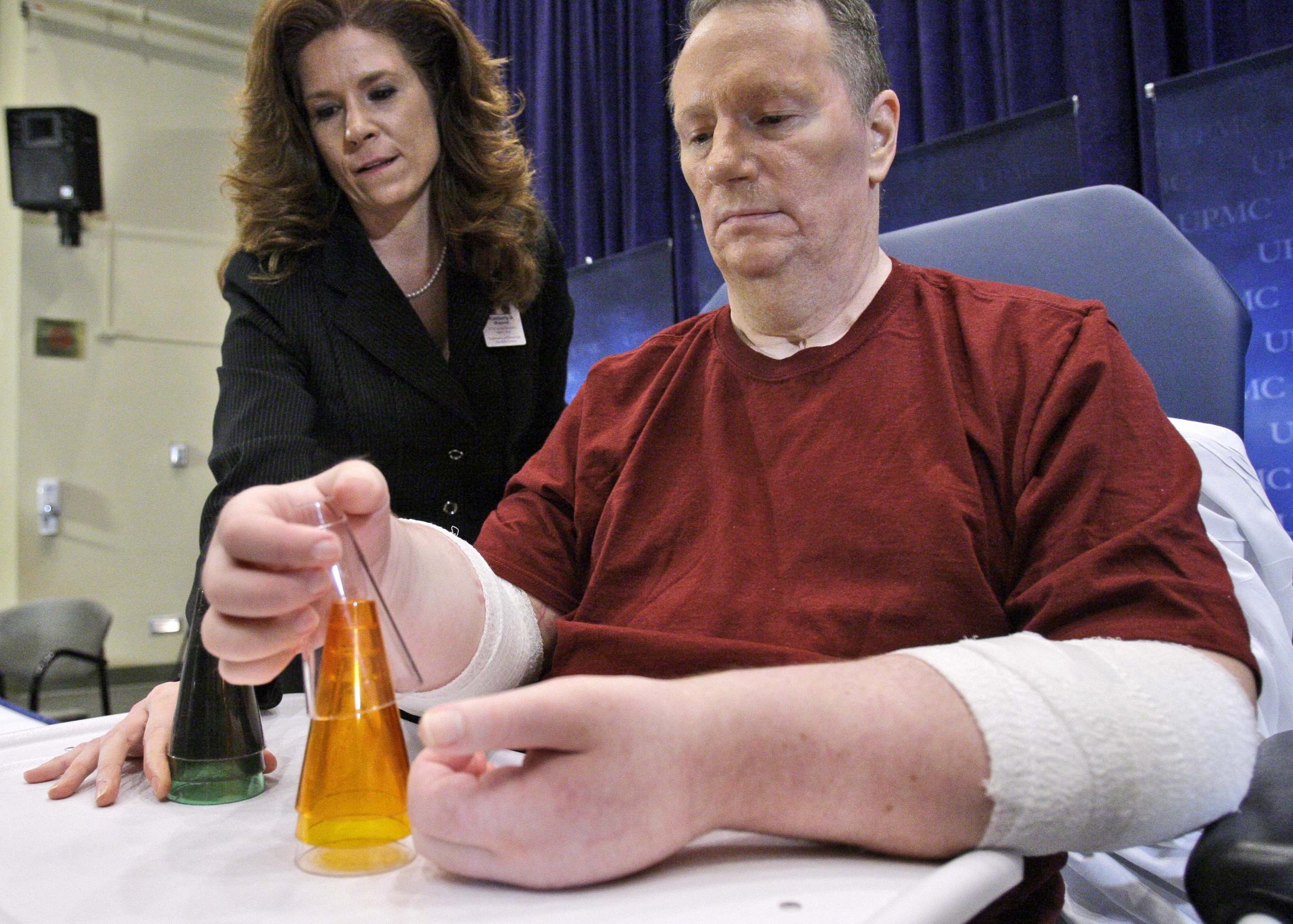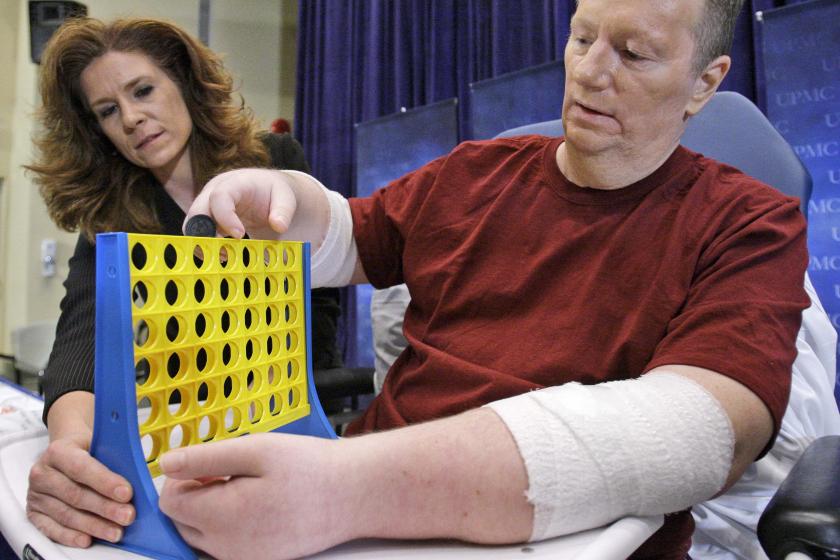First American to have double hand transplant wants them both removed
Jeff Kepner says pioneering surgery has ruined his life

Your support helps us to tell the story
From reproductive rights to climate change to Big Tech, The Independent is on the ground when the story is developing. Whether it's investigating the financials of Elon Musk's pro-Trump PAC or producing our latest documentary, 'The A Word', which shines a light on the American women fighting for reproductive rights, we know how important it is to parse out the facts from the messaging.
At such a critical moment in US history, we need reporters on the ground. Your donation allows us to keep sending journalists to speak to both sides of the story.
The Independent is trusted by Americans across the entire political spectrum. And unlike many other quality news outlets, we choose not to lock Americans out of our reporting and analysis with paywalls. We believe quality journalism should be available to everyone, paid for by those who can afford it.
Your support makes all the difference.Jeff Kepner lost both his hands after a bacterial infection spread through his body in 1999.
So he leapt at the chance seven years ago of becoming a medical pioneer with the world’s first double hand transplant. It offered, he said, the chance to hold his wife again.
Now he wants them removed.
“From day one I have never been able to use my hands,” Mr Kepner told Time.
“'I can do absolutely nothing. I sit in my chair all day and wear my TV out.”

His story illustrates the risks in making medical history and being a human guinea pig for an experimental technique.
His hands and legs had to be amputated after a throat infection spread through his body triggering sepsis - a massive immune response that can shut down organs and cause death.
False hands enabled him to drive and to hold down a job, he said.
Then he was offered surgery to attach hands from a donor.
He said he knew the nine-hour operation at the University of Pittsburgh Medical Centre carried the risk of rejection, but believed he could always have the procedure reversed - and his prosthetic hands returned - if feeling did not return in a year.
Now though he says he cannot face more operations to give him better use of the hands, or the risk of full removal.
“I am not going through all those operations again,” he said.
Dr Vijay Gorantla, administrative medical director of the Pittsburgh Reconstructive Transplant Program at UPMC, said the options had been discussed with Mr Kepner and his family several times in the past two years.
“We have done everything possible to address his concerns and provide him the best possible, yet realistic, options for the transplant,” he said. “We have been frank with him about the anticipated risks and benefits of each option while openly discussing the known and unknown aspects of these procedures.”
He added that there were no signs of rejection and that minor surgical interventions and more physiotherapy would help Mr Kepner get more use from his hands.
The episode highlights the risks of experimental treatments and transplant surgery in general. Earlier this year, surgeons announced that America’s first uterus transplant had failed because of an infection although the 26-year-old patient survived.
Join our commenting forum
Join thought-provoking conversations, follow other Independent readers and see their replies
Comments